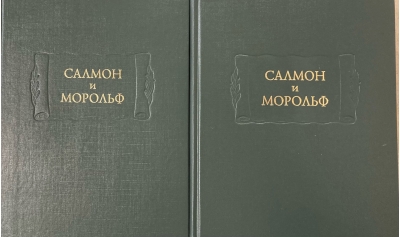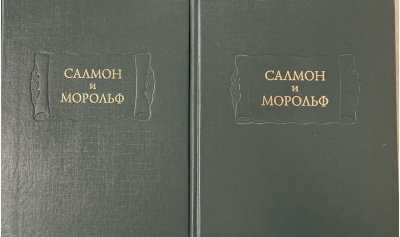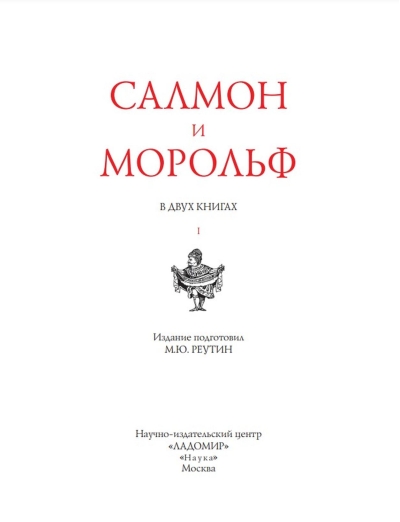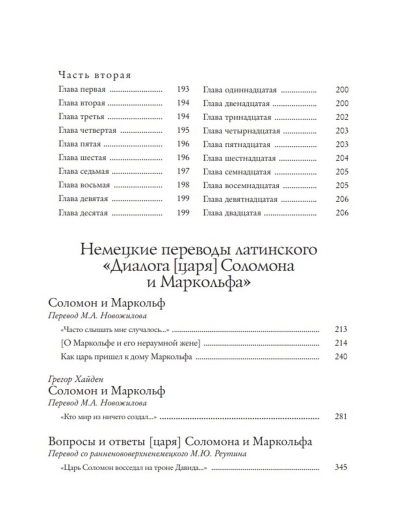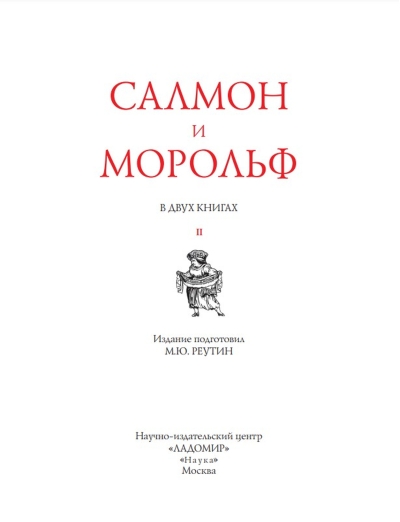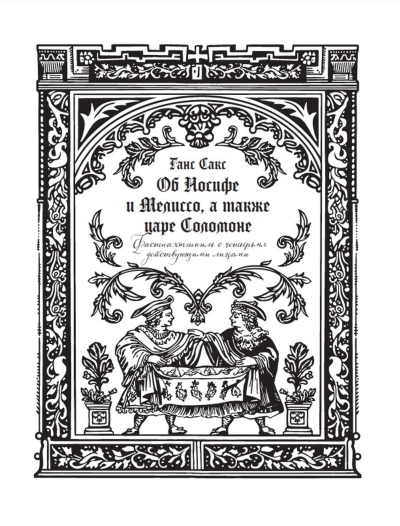Salmon and Morolf. In 2 volumes
99.99 €
The only thing available 1
The Old German culture of laughter — apparently the most developed among the comic traditions of medieval Europe — is already partly known to the Russian reader. Thanks to the classic editions of V. M. Zhirmunsky and B. I. Purishev, its main characters have firmly entered the everyday life of Russian humanitarian science and have aroused the interest of the general Russian reader. The oldest of them is the jester Markolf, also known under the name Morolf.
This volume includes complete translations of all the works of German Markolfiana — the most developed of the national Markolfian traditions of medieval Europe. These works include the Spielmann epic of the late 12th century "Salmon and Morolf" (in Veselovsky's terminology — "Markolf I"); the Latin comic "Dialogue of Solomon and Markolf" ("Markolf II"); three German-language translations-arrangements of the "Dialogue" from the 14th and 15th centuries and five Shrovetide plays (Fastnachtspiels) from the 15th and 16th centuries, written by the Nuremberg mastersingers G. Folz, G. Sachs and the Lucerne playwright C. Bloetz.
The translations are provided with detailed notes and an accompanying article. In the latter, the German works about Marcolf are considered in a broad cultural and historical context, against the background of the Solomonic tradition, which arose from late antique biblical exegesis (Babylonian Talmud, Midrash), spread to Arabic, Russian, Old English cultures and, in turn, gave birth to a subsidiary Marcolfian tradition at the turn of the 1st and 2nd millennia, which by the middle of the 16th century penetrated into French, English, Italian, Polish, Danish, Swedish and Icelandic cultures.
The publication is supplied with numerous illustrations from the "Eschenburg manuscript" and the "folk book" of M. Ayrer. Recommended for the widest range of readers.
This volume includes complete translations of all the works of German Markolfiana — the most developed of the national Markolfian traditions of medieval Europe. These works include the Spielmann epic of the late 12th century "Salmon and Morolf" (in Veselovsky's terminology — "Markolf I"); the Latin comic "Dialogue of Solomon and Markolf" ("Markolf II"); three German-language translations-arrangements of the "Dialogue" from the 14th and 15th centuries and five Shrovetide plays (Fastnachtspiels) from the 15th and 16th centuries, written by the Nuremberg mastersingers G. Folz, G. Sachs and the Lucerne playwright C. Bloetz.
The translations are provided with detailed notes and an accompanying article. In the latter, the German works about Marcolf are considered in a broad cultural and historical context, against the background of the Solomonic tradition, which arose from late antique biblical exegesis (Babylonian Talmud, Midrash), spread to Arabic, Russian, Old English cultures and, in turn, gave birth to a subsidiary Marcolfian tradition at the turn of the 1st and 2nd millennia, which by the middle of the 16th century penetrated into French, English, Italian, Polish, Danish, Swedish and Icelandic cultures.
The publication is supplied with numerous illustrations from the "Eschenburg manuscript" and the "folk book" of M. Ayrer. Recommended for the widest range of readers.
See also:
- All books by the publisher
- All books in the series Literary monuments


